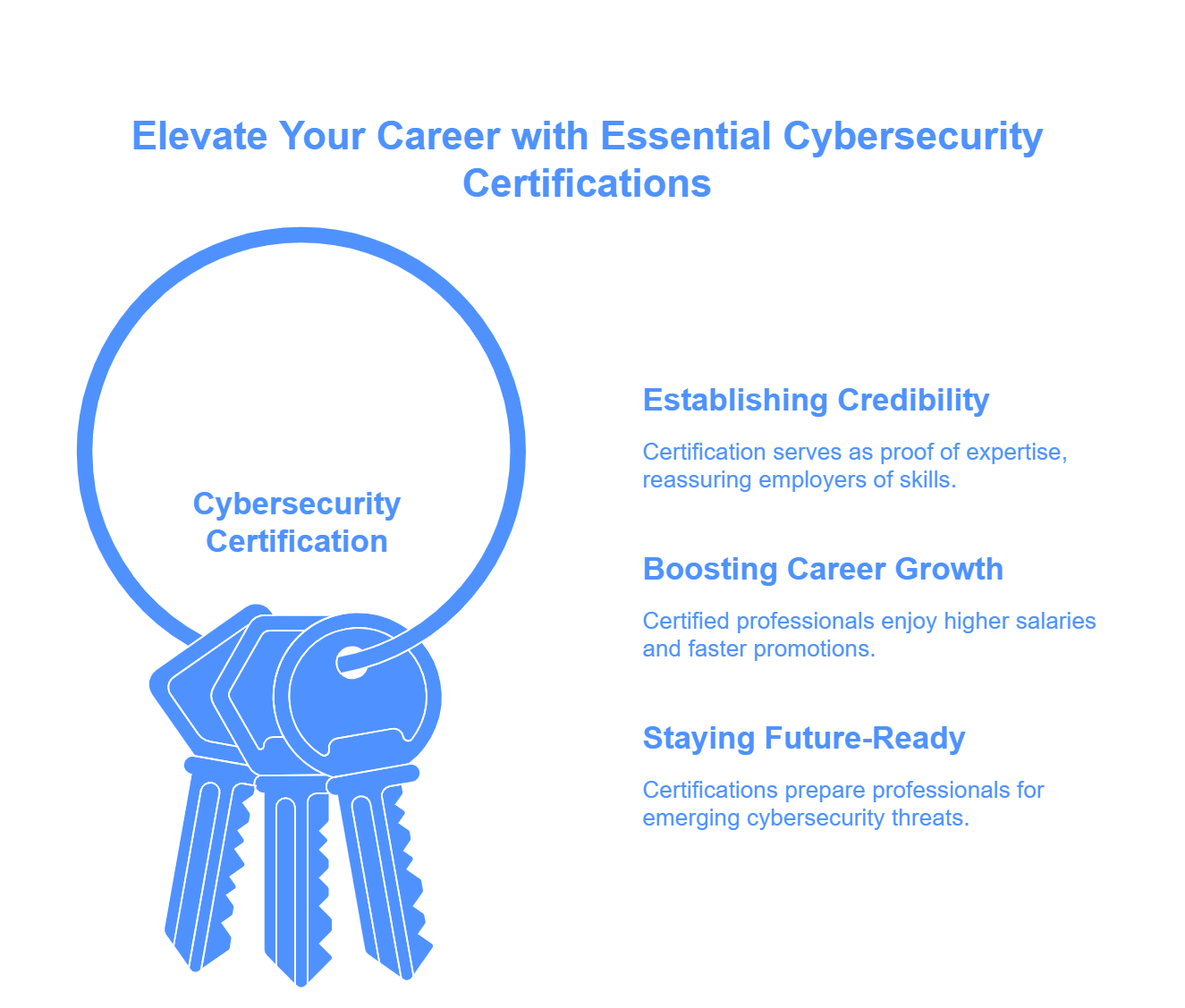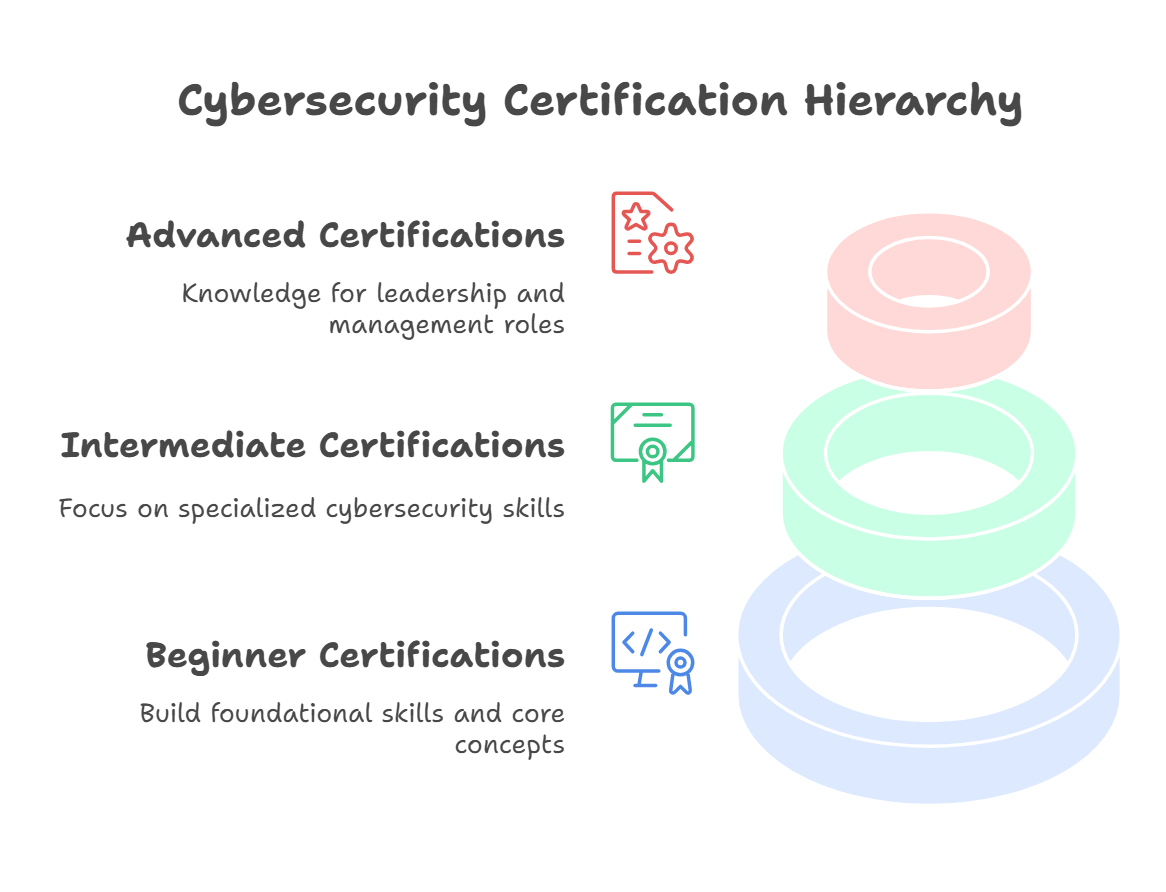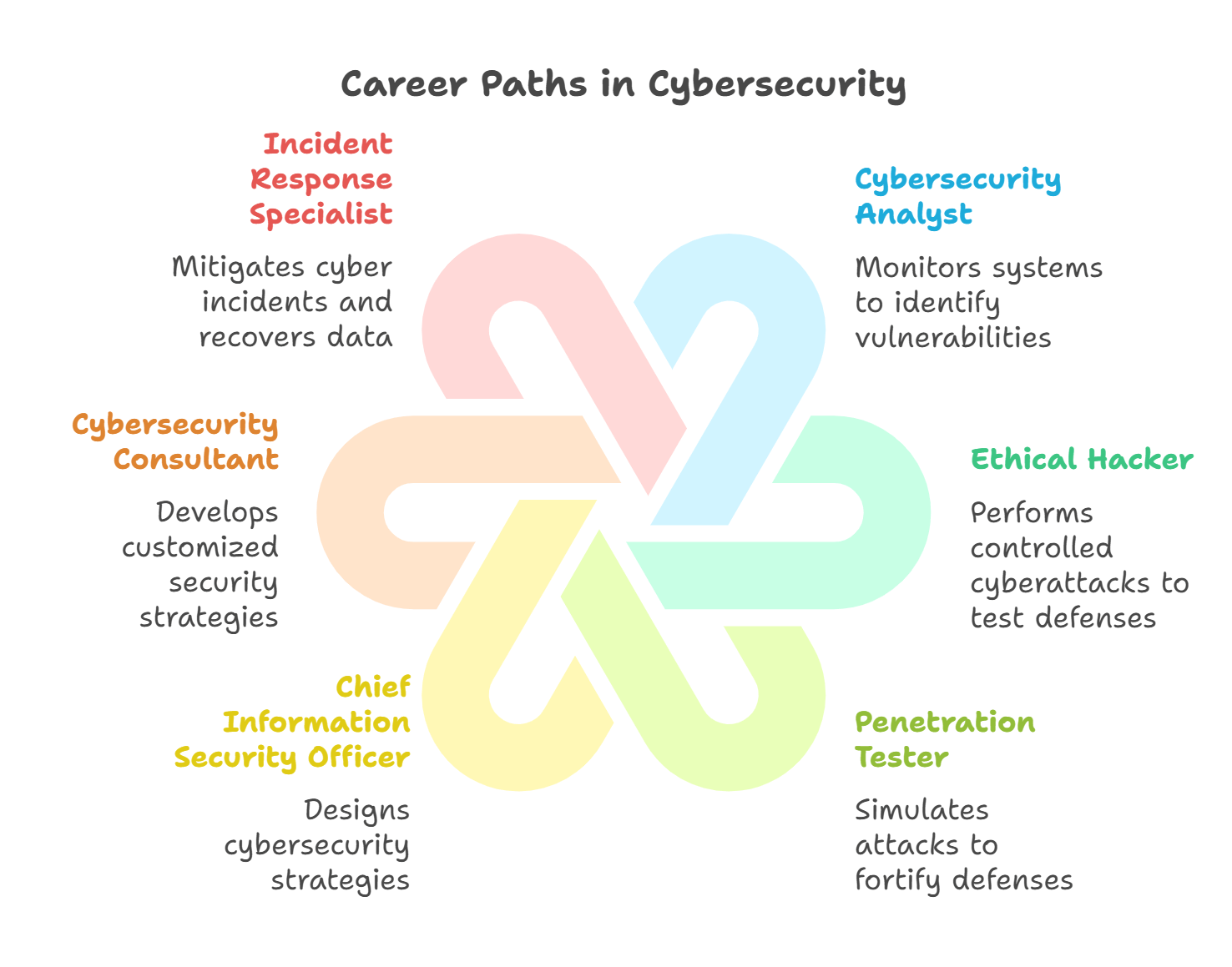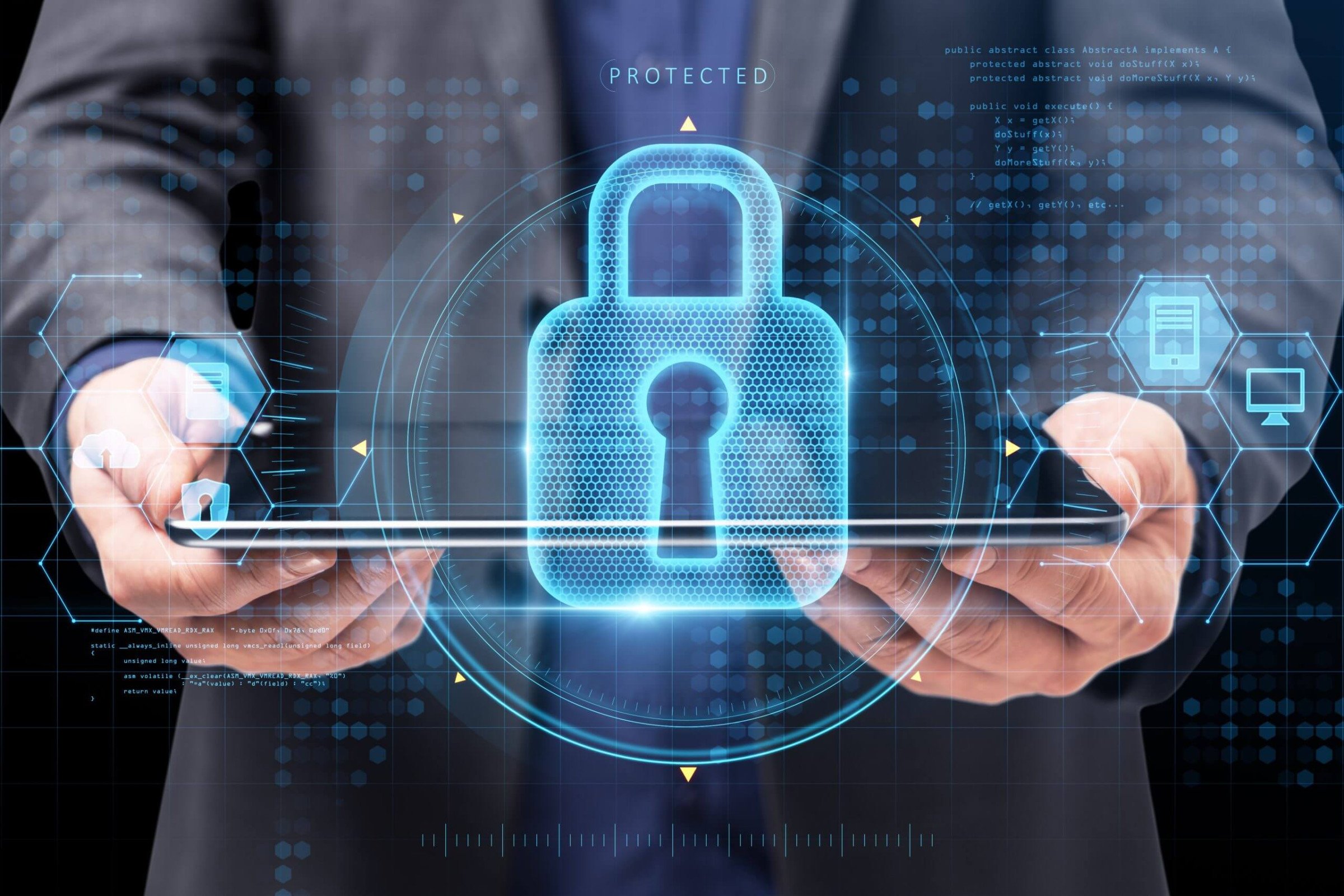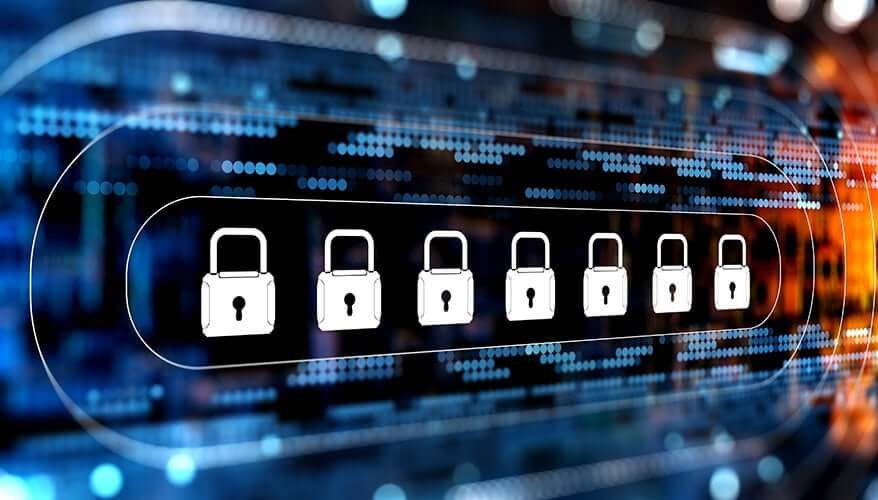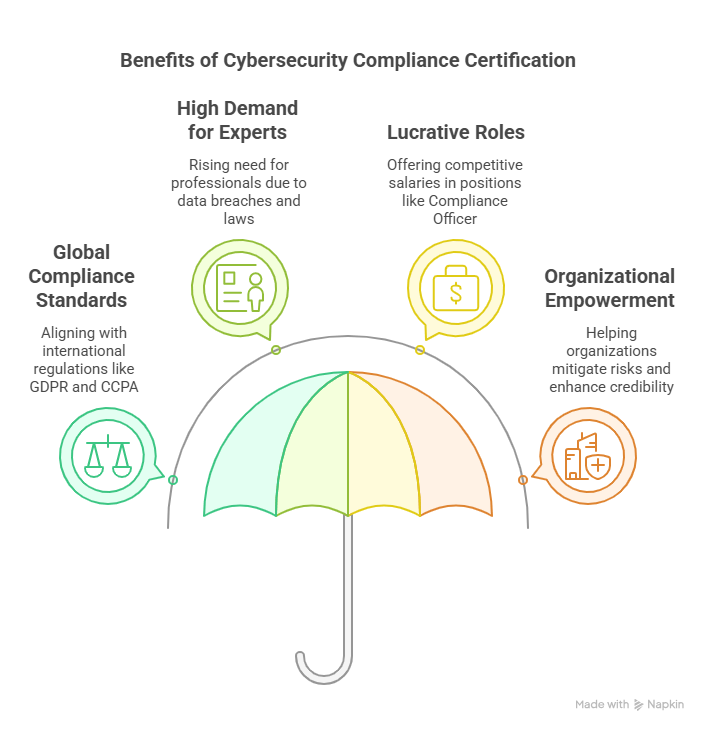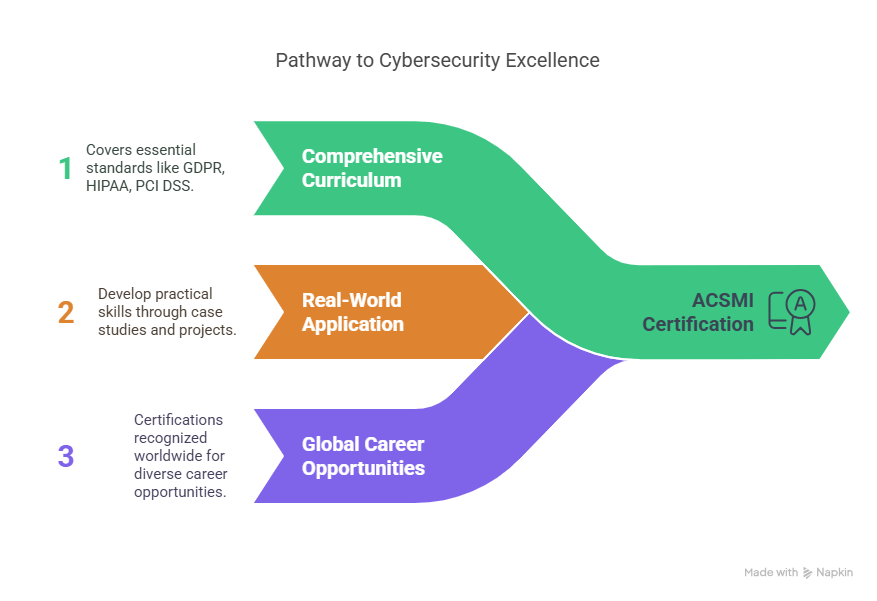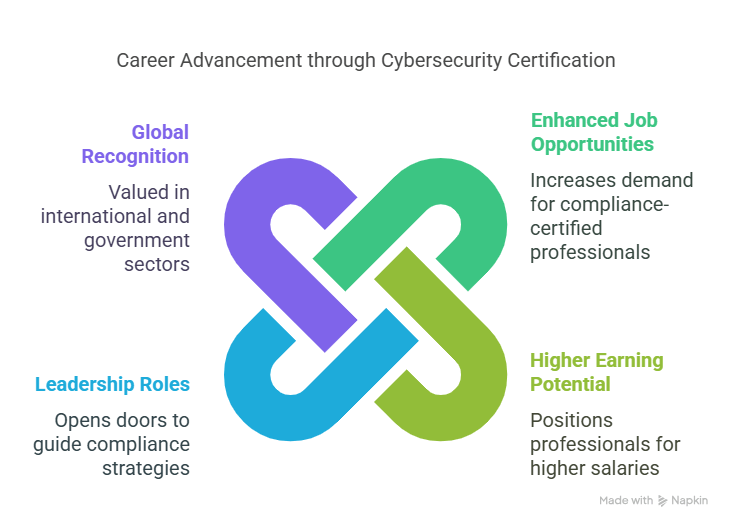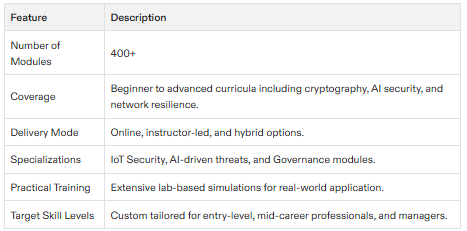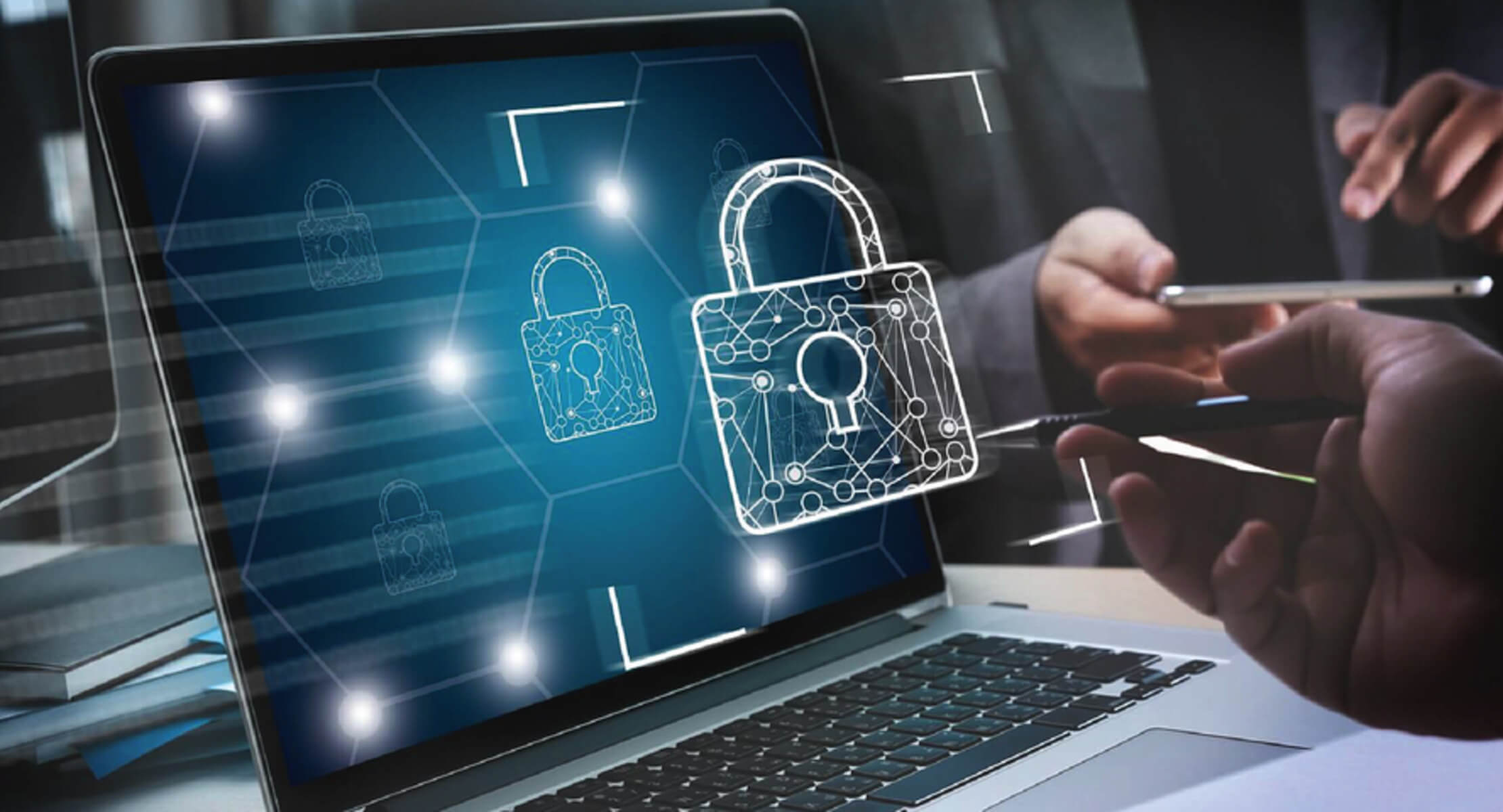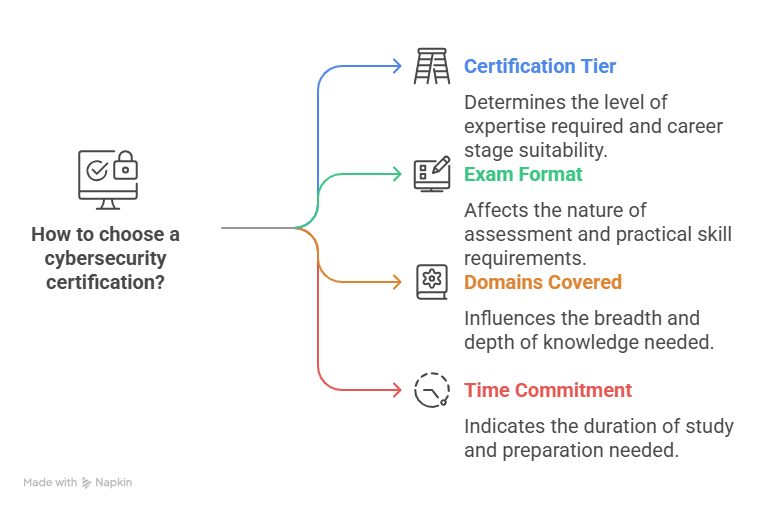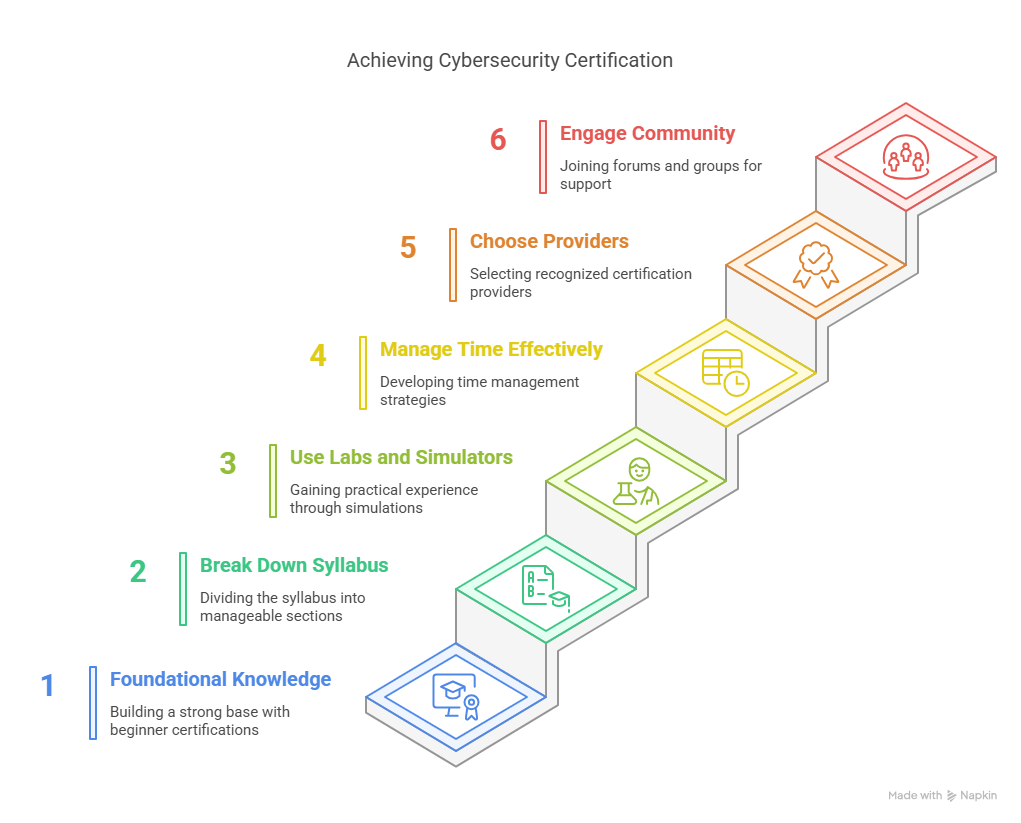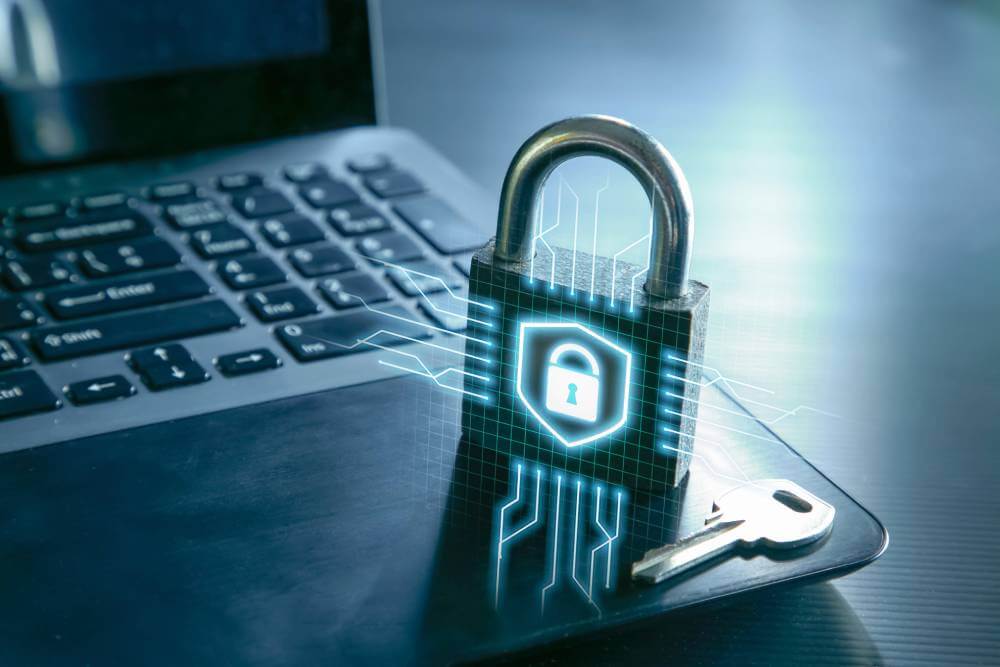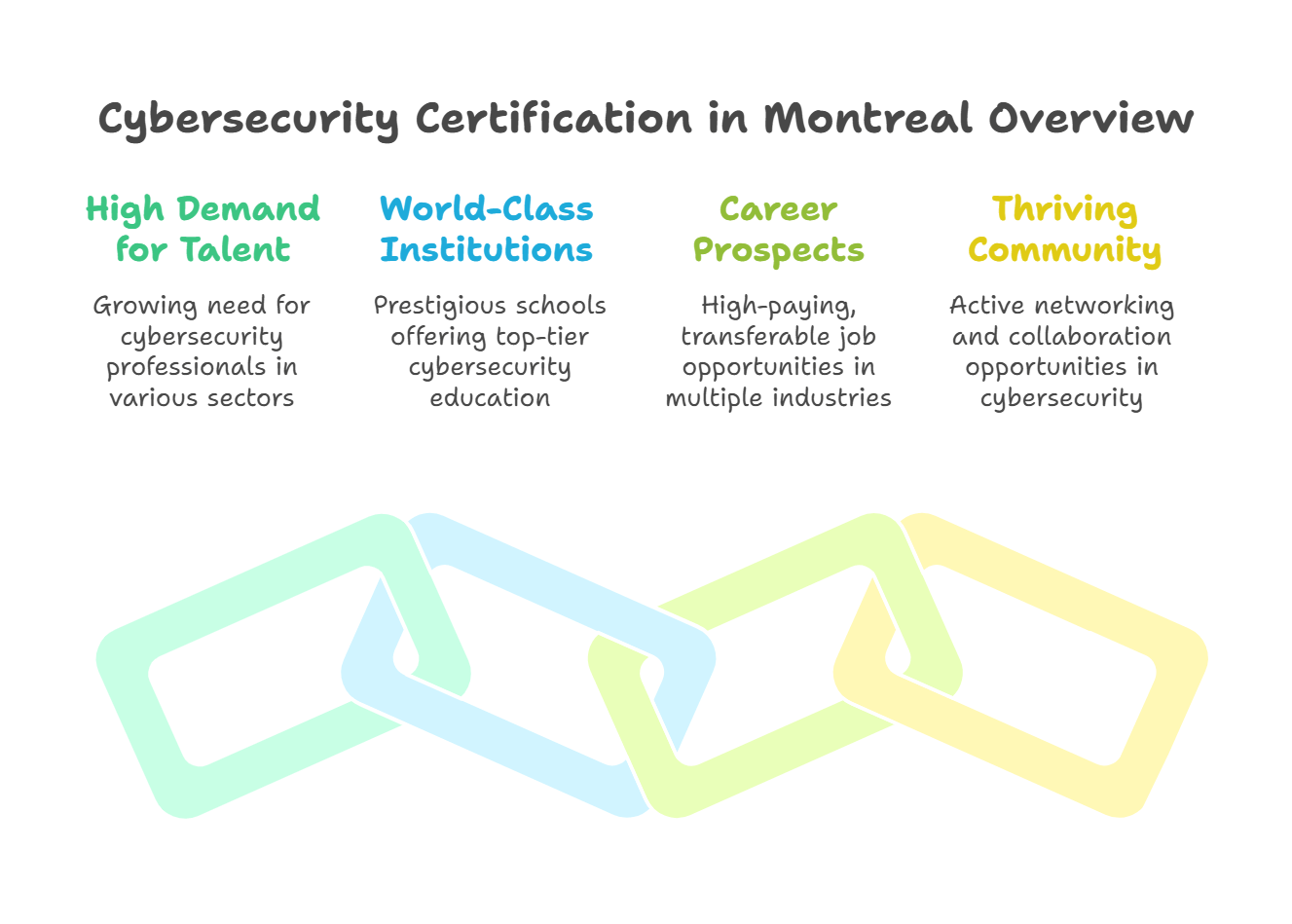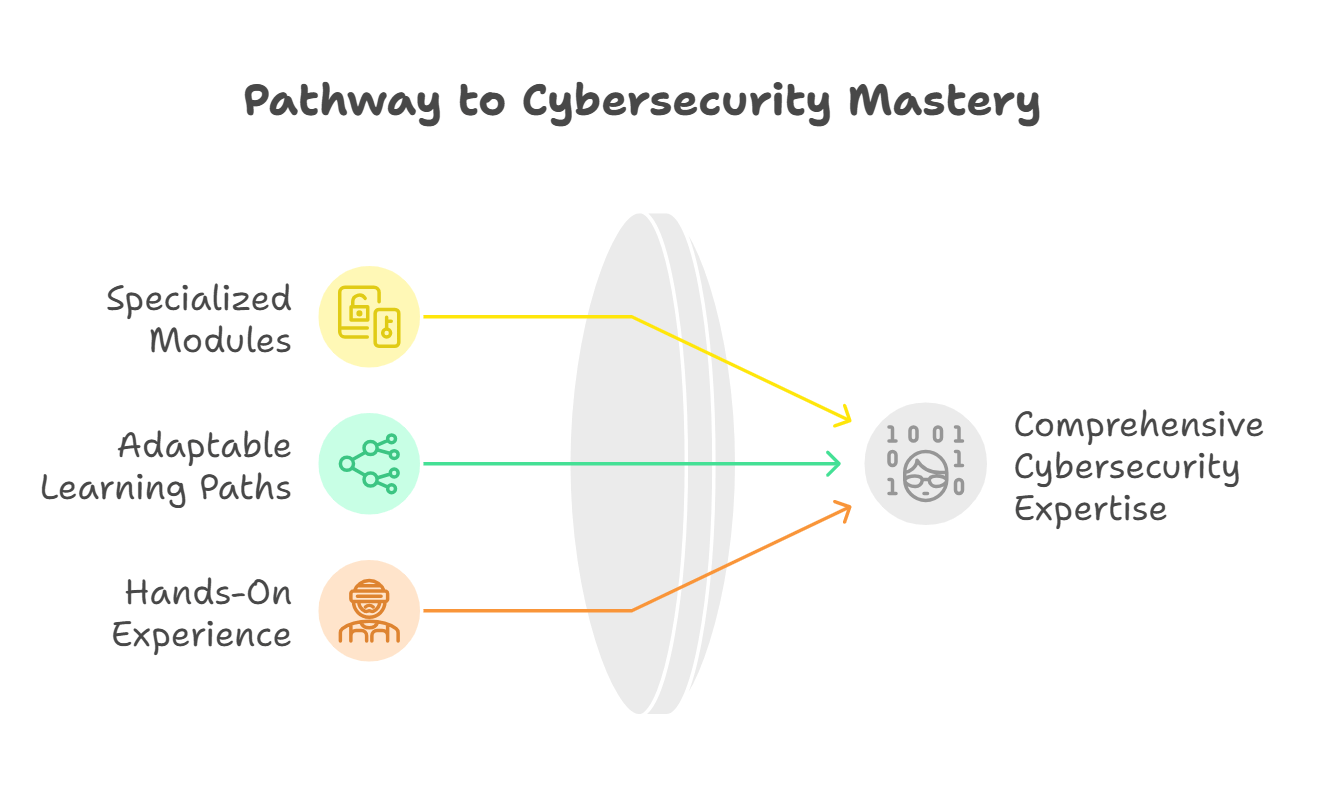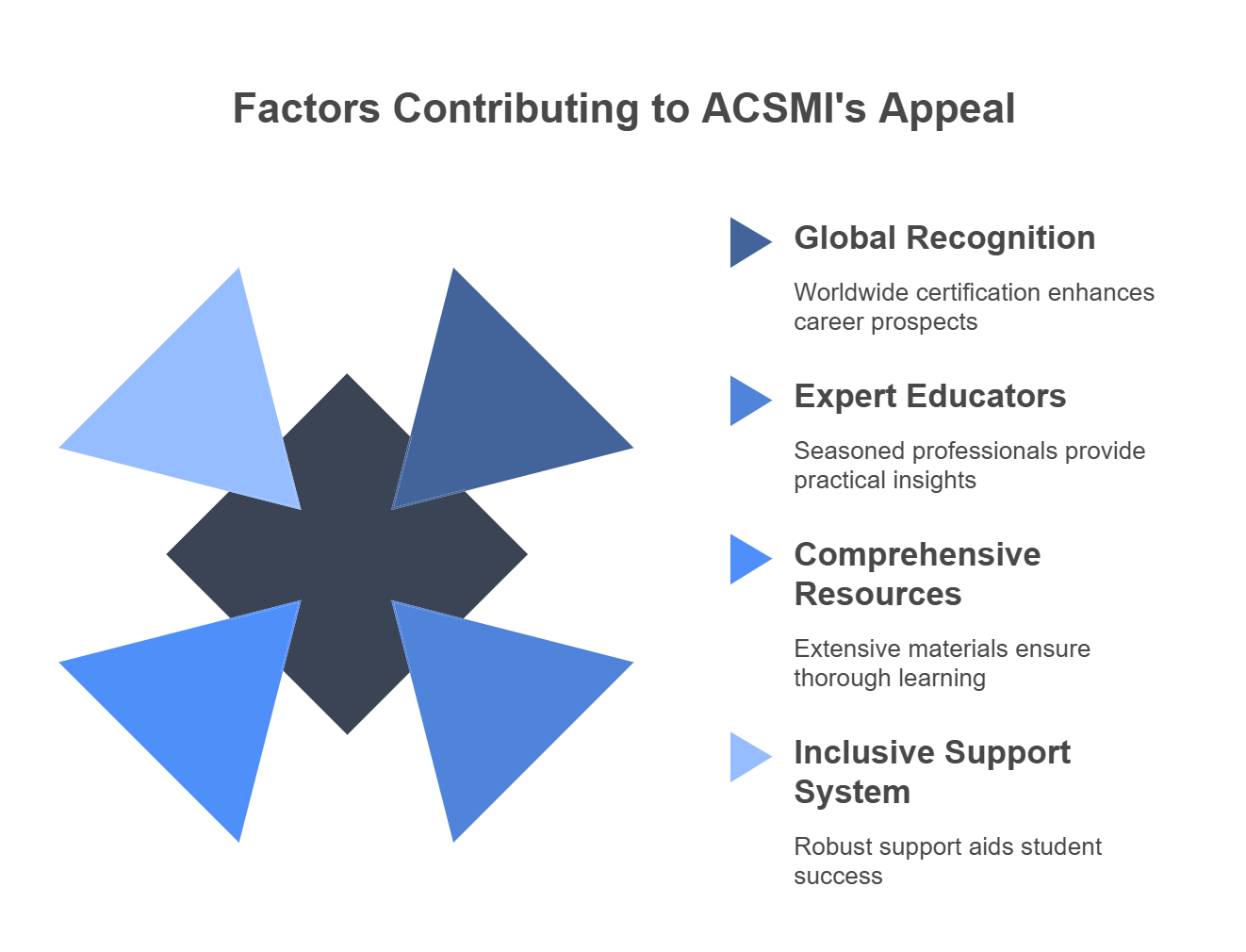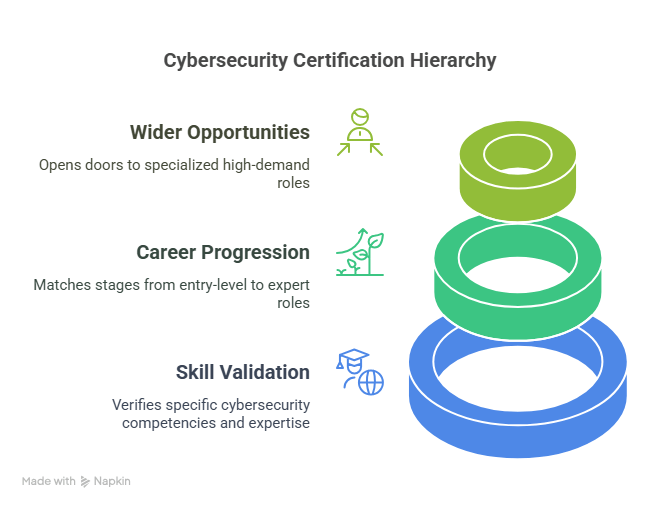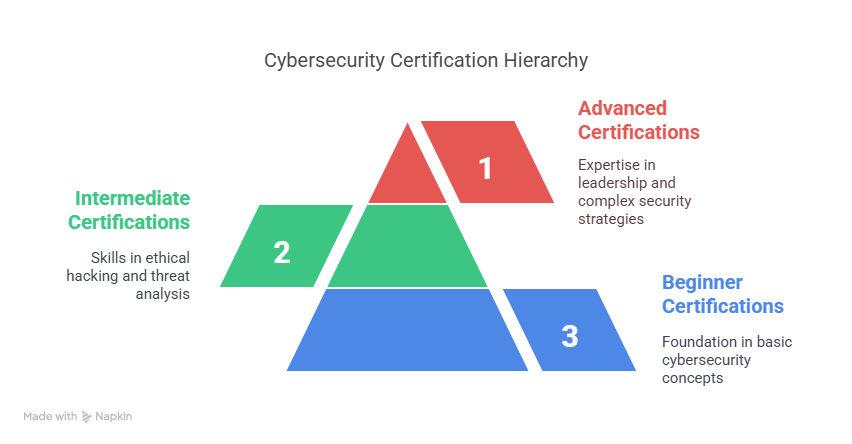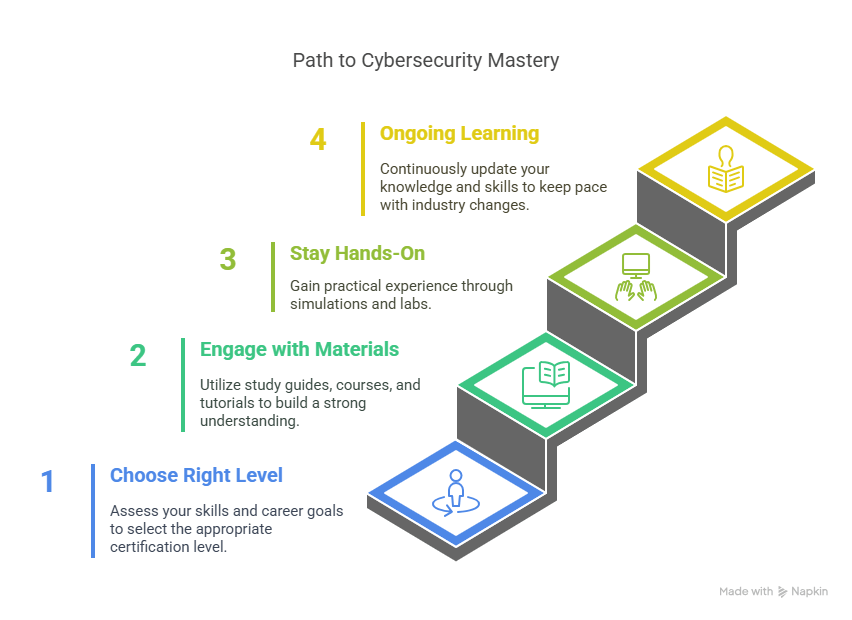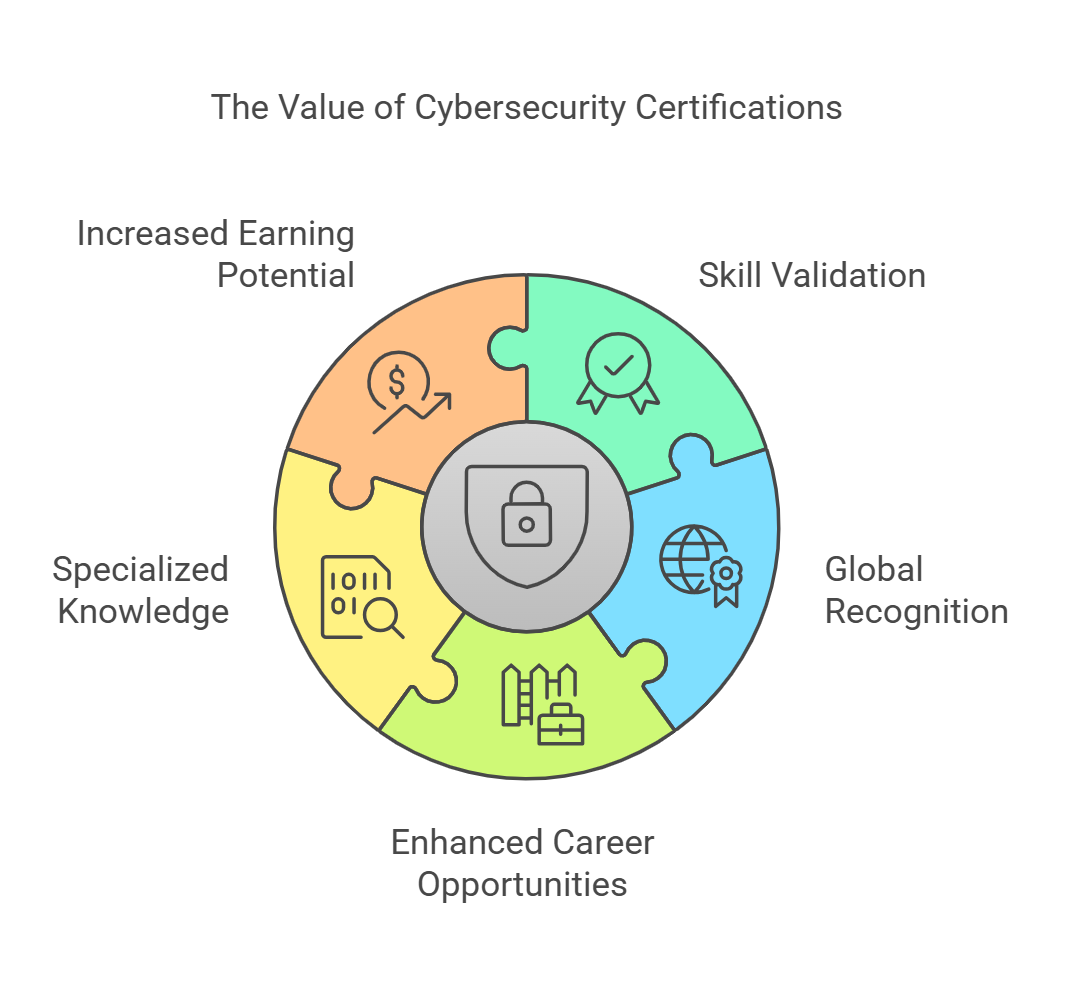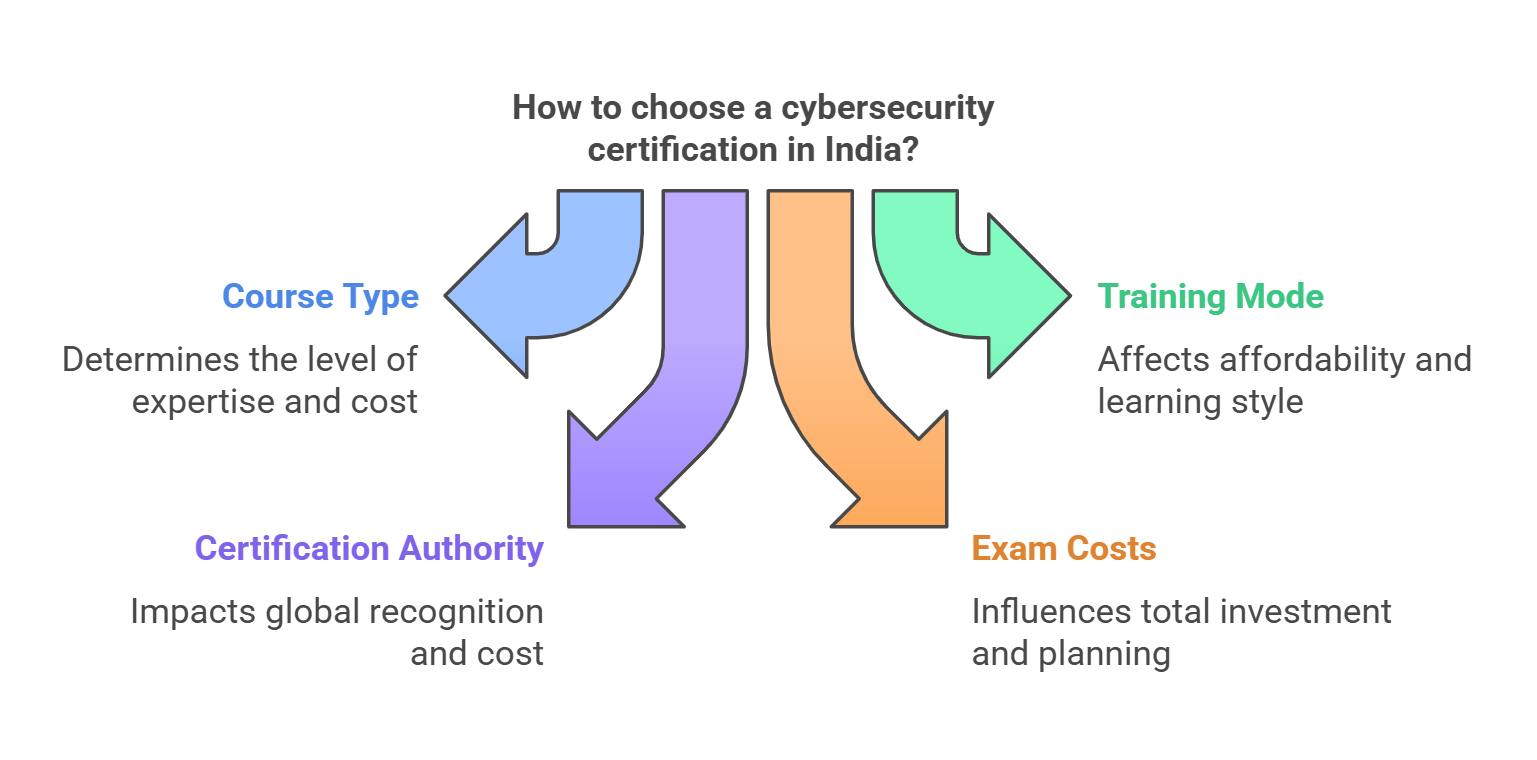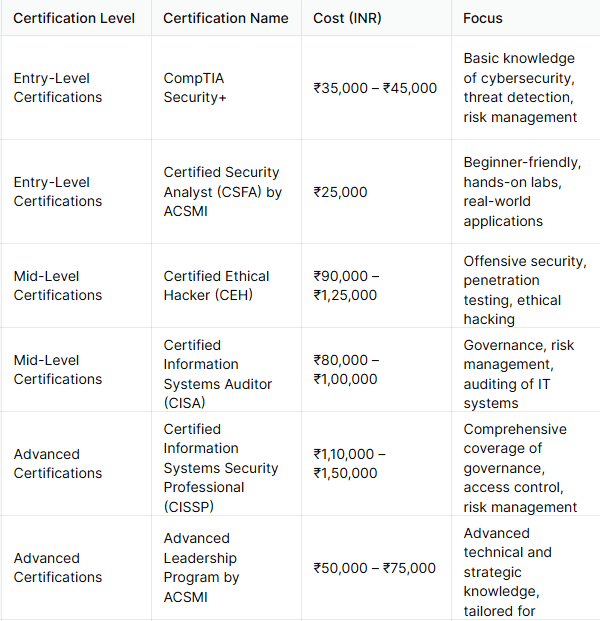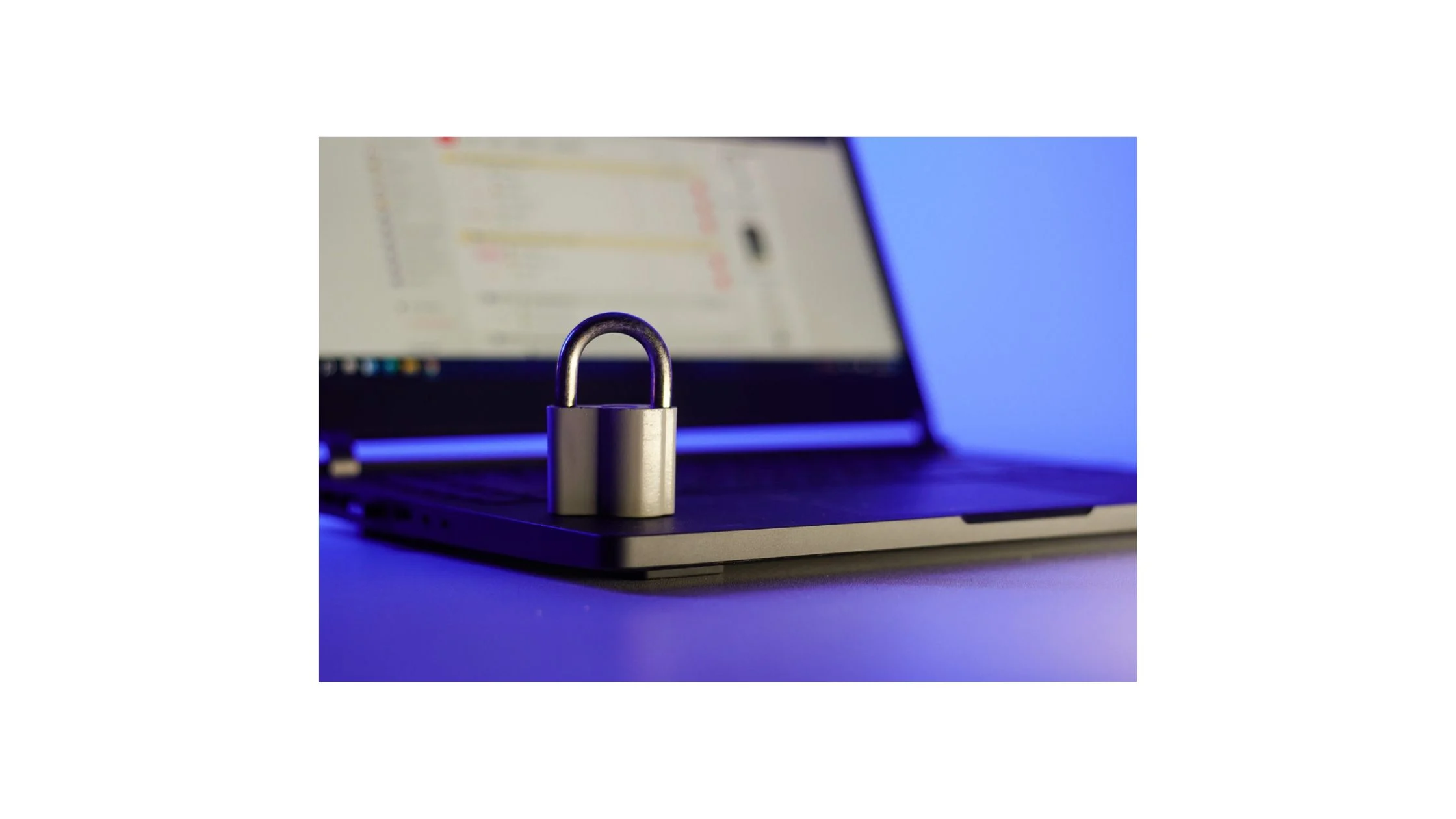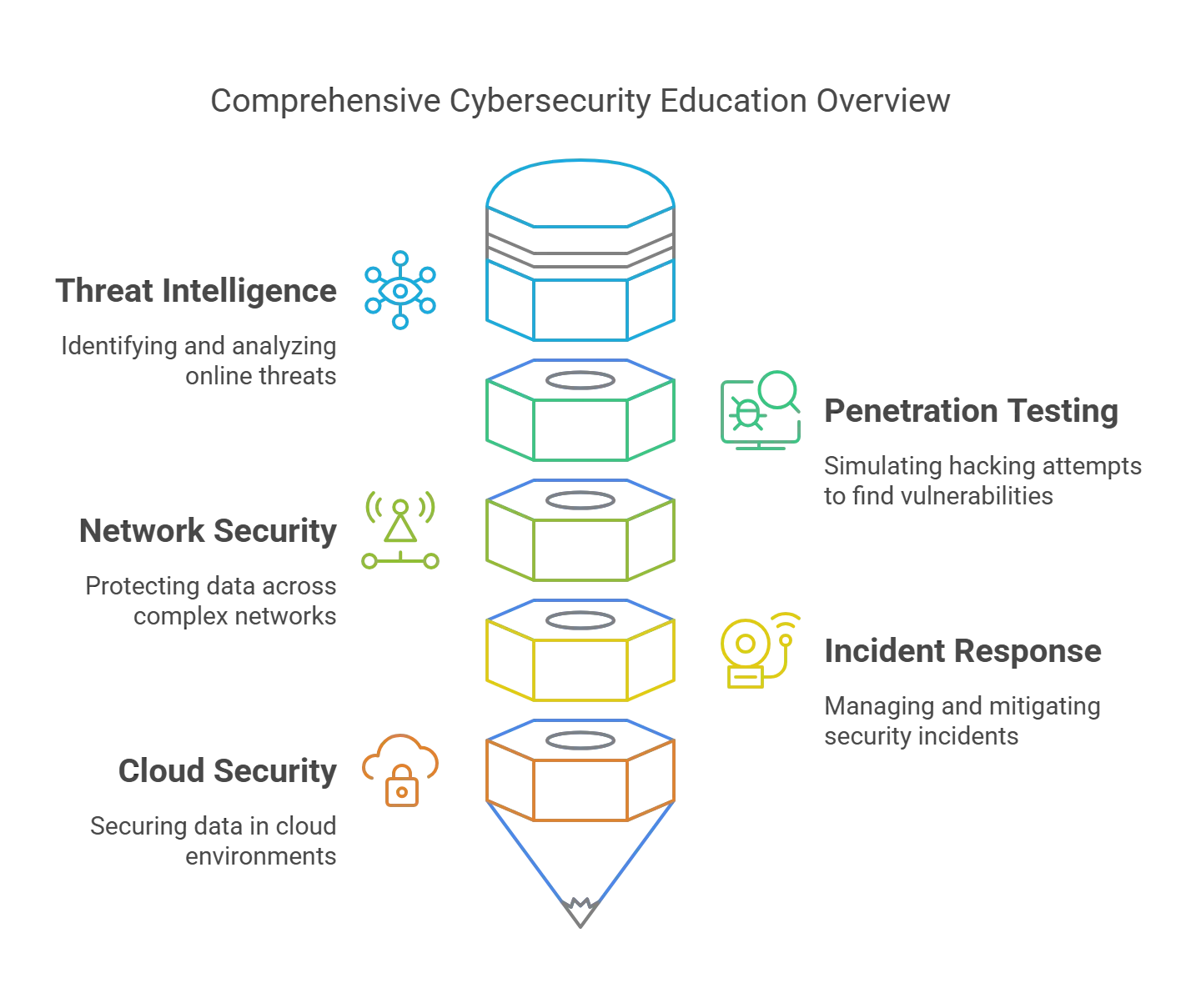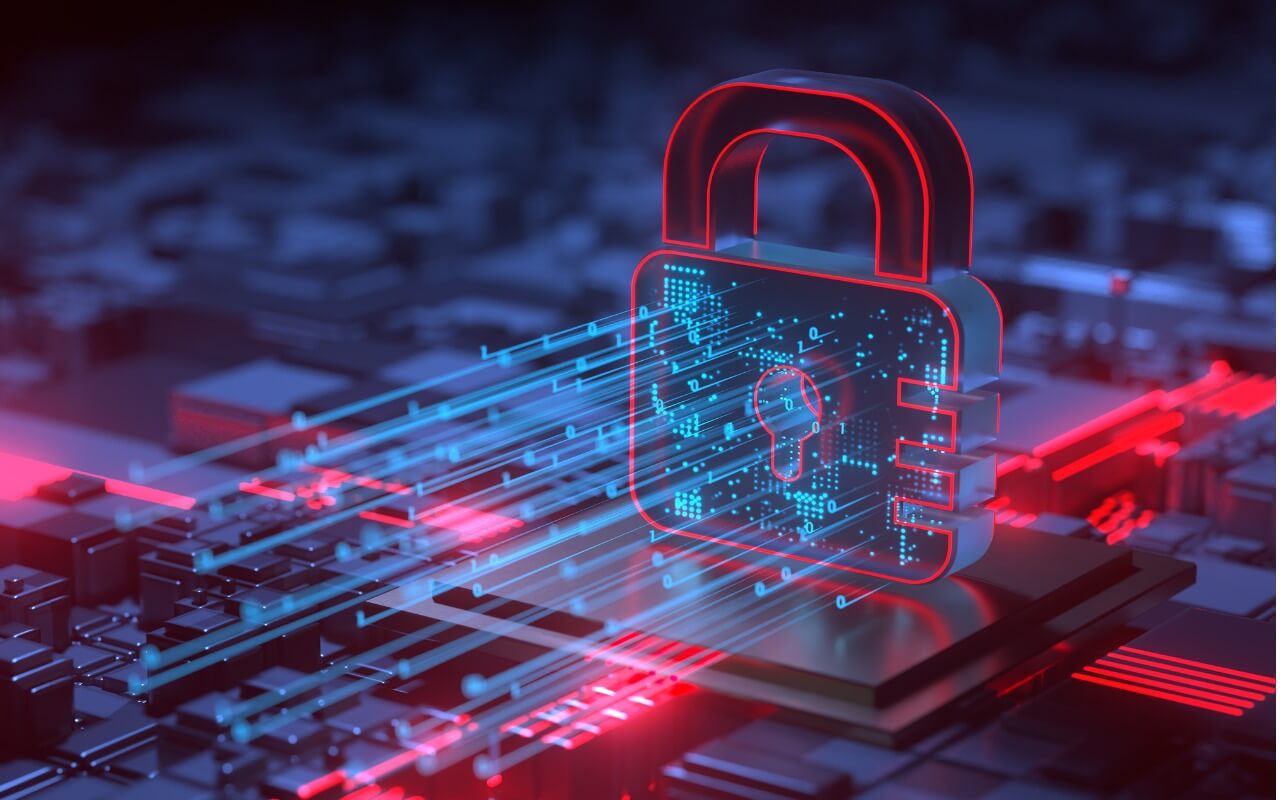Table of Contents
Alright, buckle up, cyber warriors! Ready to level up your cybersecurity game in the vibrant landscape of India? Let’s dive into the ultimate guide to Cybersecurity Certifications in India, crafted for 2025 and beyond. This isn't just another blog post; it's your tactical playbook to dominate the digital battlefield. Let's get started!

The Definitive Guide to Cybersecurity Certifications in India (2025 Edition)
The digital age has brought unprecedented convenience, but it has also swung open the gates to cyber threats. With cybercrime rates soaring, businesses, governments, and individuals alike are scrambling for skilled cybersecurity professionals to protect their critical systems and data. If you’re in India and looking to make a significant impact, pursuing a cybersecurity certification is your golden ticket to a rewarding career in this explosive field.
Why Cybersecurity Certification Matters Now More Than Ever
A cybersecurity certification isn’t just a fancy piece of paper; it’s a rock-solid testament to your expertise and dedication. These certifications prove that you're capable of protecting networks, diagnosing complex security breaches, and implementing cutting-edge cybersecurity best practices. As India's digital transformation accelerates at warp speed, cybersecurity certifications are critical for both seasoned pros and ambitious newcomers.
According to a recent study by NASSCOM, India needs at least one million cybersecurity experts by 2025. Certification ensures you’re not just in demand but that you also stand head and shoulders above the competition in a hyper-competitive job market.
For a comprehensive understanding of the costs associated with cybersecurity certifications, explore our in-depth guide on The Complete Guide to Cybersecurity Certification Cost.
Top Cybersecurity Certifications to Dominate the Indian Market
The landscape of cybersecurity certifications is vast and varied, with options tailored to different career paths and skill levels. Here are some of the top certifications that will set you apart in the Indian cybersecurity arena:
Certified Ethical Hacker (CEH)
The CEH certification remains one of the most coveted credentials in the cybersecurity world. It focuses on offensive cybersecurity techniques, equipping you to think like a hacker and identify vulnerabilities before malicious actors can exploit them.
-
Why it matters: In 2025, understanding the mindset and methods of hackers is essential. The CEH provides hands-on experience in penetration testing, vulnerability assessment, and ethical hacking methodologies.
-
Ideal for: Security analysts, penetration testers, and anyone responsible for identifying and mitigating vulnerabilities.

A globally recognized gold standard, CISSP covers everything from access control to cryptography and disaster recovery. It’s perfect for those aiming for leadership roles in cybersecurity.
-
Why it matters: CISSP demonstrates a comprehensive understanding of security principles and practices. It’s highly valued in managerial and executive positions.
-
Ideal for: CISOs, security managers, IT directors, and anyone in a leadership role overseeing cybersecurity strategy.
CompTIA Security+
This certification validates foundational skills in system and network security. It’s perfect for beginners but also highly recognized by employers as a credible credential.
-
Why it matters: Security+ provides a solid base for anyone entering the cybersecurity field. It covers essential security concepts and is a stepping stone to more advanced certifications.
-
Ideal for: Entry-level security professionals, IT technicians, and help desk staff looking to transition into cybersecurity.
ACSMI Cybersecurity Certification
ACSMI offers one of the most comprehensive cybersecurity certifications in India, featuring over 400 in-depth modules. This certification is designed to cater to both technical and managerial professionals, offering unmatched depth and breadth in cybersecurity training.
-
Why it matters: ACSMI certifications are tailored to the specific needs of the Indian market, covering industry-specific challenges and regulatory requirements. The extensive module list ensures comprehensive knowledge across various domains.
-
Ideal for: Both technical experts and managerial professionals looking for a deep dive into cybersecurity best practices and industry-specific knowledge.
CISM focuses on the managerial aspects of information security, including governance, risk management, and compliance.

-
Why it matters: CISM is designed for experienced security professionals who want to move into management roles. It validates their ability to develop and manage an information security program.
-
Ideal for: Information security managers, IT managers, and compliance officers.
GIAC offers a range of specialized certifications covering areas like incident response, digital forensics, and penetration testing.
-
Why it matters: GIAC certifications are highly technical and hands-on, demonstrating deep expertise in specific areas of cybersecurity.
-
Ideal for: Technical specialists looking to validate their skills in niche areas of cybersecurity.
Cloud Security Certifications (CCSP, CCSK)
With the increasing adoption of cloud computing, cloud security certifications are becoming essential. CCSP (Certified Cloud Security Professional) and CCSK (Certificate of Cloud Security Knowledge) are two of the most recognized.
-
Why it matters: Cloud security is a critical concern for organizations moving their infrastructure and data to the cloud. These certifications validate your ability to secure cloud environments.
-
Ideal for: Cloud architects, security engineers, and IT professionals working with cloud technologies.
Explore how you can become a cyber guardian by diving into our article on ICS Cybersecurity Certification.
Why Choose Cybersecurity Certification in India?
India is rapidly emerging as a global hub for tech innovation, and cybersecurity professionals are more critical than ever. Here’s why pursuing certifications here is a smart, strategic move:
Cost-Effective Training

Compared to international certifications, securing a cybersecurity certification in India is far more cost-effective. Local training institutes and online platforms provide top-notch education at more affordable rates. This means you get high-quality training without breaking the bank.
Growing Job Market
India's aggressive push for data localization and stricter cybersecurity laws ensures a steady, relentless rise in demand for skilled cybersecurity professionals. The government's focus on digital security creates a fertile ground for career opportunities.
Industry-Specific Modules
Many Indian certifications, including ACSMI, tailor their modules to meet the unique challenges of sectors such as banking, healthcare, and government. This specialized knowledge makes you a more valuable asset to these industries.
Localized Content and Case Studies
Indian cybersecurity certifications often include localized content and case studies that are relevant to the Indian context. This helps you understand the specific threats and challenges facing Indian organizations.
Government Initiatives and Support

The Indian government is actively promoting cybersecurity education and training through various initiatives and programs. This creates a supportive ecosystem for cybersecurity professionals in India.
Read more: Discover the number of modules included in the Google Cybersecurity Certification by reading our detailed article on How Many Modules in Google Cybersecurity Certification.
How to Choose the Right Certification for You
Selecting the right cybersecurity certification in India hinges on your career goals, experience level, and specialization. Here are some critical factors to consider:
Your Career Stage
-
Entry-level professionals: Begin with foundational certifications like CompTIA Security+ or ACSMI’s foundational modules. These provide a broad overview of cybersecurity principles and practices.
-
Mid-level professionals: Aim for certifications like CEH, CISM, or cloud-specific certifications (CCSP, CCSK). These certifications demonstrate more specialized knowledge and skills.
-
Senior professionals: Target CISSP or advanced managerial modules from ACSMI. These are designed for leadership roles and strategic decision-making.
Specialization Area
-
Ethical hacking: CEH and ACSMI's offensive modules are perfect. These focus on penetration testing, vulnerability assessment, and ethical hacking techniques.
-
Governance and compliance: Go for certifications like CISM. These cover risk management, compliance frameworks, and security governance.
-
Cloud security: Choose CCSP or CCSK. These validate your ability to secure cloud environments and protect cloud-based data.
-
Incident response: Look for GIAC certifications in incident handling. These provide specialized knowledge in identifying, containing, and eradicating cyber threats.
Training Resources
Ensure the certification program offers hands-on labs, instructor-led sessions, and real-world problem-solving scenarios. The more practical experience you get, the better prepared you’ll be for the exam and your career.
Industry Recognition
Consider certifications that are widely recognized and respected in the Indian cybersecurity industry. Look for endorsements from leading companies and government agencies.
Exam Difficulty and Pass Rates
Research the exam difficulty and pass rates for different certifications. This can help you gauge the level of preparation required and choose a certification that aligns with your skills and knowledge.
Preparing for Your Certification Exams: Ace the Test
Getting certified isn’t just about signing up—you'll need meticulous preparation. Here are actionable steps to ace your cybersecurity certification:
Study Materials
Choose official coursework, and combine it with supplementary materials like study guides, video tutorials, and practice tests. Diversifying your learning resources ensures a comprehensive understanding.
Hands-On Experience
Practical application is king in cybersecurity. Many certifications, including ACSMI, offer lab-based exercises to simulate real-world problems. Use these labs extensively to hone your skills.
Join Study Groups
Collaborating with peers can expose you to new study resources and networking opportunities. Study groups offer a supportive environment for sharing knowledge and clarifying doubts.
Mock Tests
Take as many practice exams as possible. They give you a feel for the test structure and ensure you’re exam-ready. Analyze your results to identify weak areas and focus your study efforts accordingly.
Stay Updated
Cybersecurity is a rapidly evolving field. Stay updated with the latest threats, technologies, and best practices by reading industry blogs, attending webinars, and participating in online forums.
Career Prospects After Cybersecurity Certification in India

The demand for cybersecurity professionals in India is skyrocketing, thanks to the country’s rapid digitization and increasing cyber threats. Companies across industries—banking, healthcare, IT, and even government agencies—are seeking skilled experts to safeguard their data and networks. A cybersecurity certification in India not only equips you with the necessary skills but also unlocks a range of high-paying, impactful roles. Here’s a closer look at career opportunities after certification:
Security Analyst
A Security Analyst plays a pivotal role in defending an organization’s digital assets. Your responsibilities would include monitoring systems, identifying vulnerabilities, and responding swiftly to cyber incidents. This role is perfect for those who love problem-solving and staying on top of evolving threats.
Ethical Hacker
Ever dreamt of outsmarting hackers at their own game? Ethical Hackers, or penetration testers, use hacking techniques to expose weaknesses in systems before malicious actors do. It's a thrilling role that combines creativity and technical expertise, making it one of the most in-demand positions today.
If you aim to lead and strategize, the role of a Chief Information Security Officer could be your calling. CISOs oversee an organization’s entire security framework, from policies to execution. It's a senior position typically pursued by professionals with years of experience and certifications like CISSP or ACSMI’s managerial modules.
Cryptographer
Cryptographers focus on securing sensitive data through encryption techniques. They design systems that protect everything from financial transactions to national security data. This role demands a strong foundation in mathematics and encryption algorithms, making it ideal for specialists.
Cybersecurity Consultant
Many organizations hire Cybersecurity Consultants to evaluate and improve their security posture. In this role, you’ll often work with multiple clients, diagnosing their vulnerabilities and suggesting tailored defenses. It offers variety, challenges, and the opportunity to build a broad skill set.
Incident Response Specialist
When cyberattacks occur, Incident Response Specialists are on the frontlines. You’ll be in charge of identifying breaches, mitigating damage, and developing strategies to prevent future attacks. This role is critical as organizations strive to remain resilient against threats.
Security Architect
Security Architects design and implement security systems for an organization. They create blueprints for security infrastructure, ensuring that all components work together to protect against threats.
Digital Forensics Analyst
Digital Forensics Analysts investigate cybercrimes and security incidents. They collect and analyze digital evidence to identify attackers and understand the scope of the damage.
Compliance Officer
Compliance Officers ensure that an organization adheres to relevant laws, regulations, and industry standards. They develop and implement policies and procedures to maintain compliance.
High Earning Potential: Secure Your Financial Future

Cybersecurity is not just career-secure; it’s also financially rewarding. Professionals with cybersecurity certifications in India can earn impressive salaries depending on their role, experience, and location. Here’s an approximate average breakdown:
-
Entry-Level Roles: ₹6–12 lakh per annum
-
Mid-Level Roles (5–10 years experience): ₹12–18 lakh per annum
-
Senior and Leadership Roles (10+ years experience): ₹18–25 lakh or more per annum
With the booming demand for cybersecurity professionals and the increasing integration of advanced technologies, these numbers are only expected to grow. Certification ensures you’re well-prepared to seize these incredible opportunities.
Top Companies Hiring Cybersecurity Professionals in India
Several leading companies in India are actively hiring cybersecurity professionals. Here are some of the top employers:
These companies offer a wide range of cybersecurity roles, from entry-level positions to senior leadership roles.
ACSMI Cybersecurity Certification: Your Path to Mastery
ACSMI certifications are designed to provide comprehensive cybersecurity training tailored to the Indian market. With over 400 in-depth modules, ACSMI certifications cover a wide range of topics, from foundational concepts to advanced techniques. ACSMI’s certification is rapidly gaining traction due to its industry-aligned, module-rich structure. ACSMI provides 100% online courses for flexibility.
Facts About Cybersecurity in India
-
The First Computer Virus: The "Creeper" virus, created in 1971, is considered the first computer virus. It displayed the message "I'm the creeper, catch me if you can." (Source)
-
Cybersecurity Insurance: The cybersecurity insurance market is expected to reach $28 billion globally by 2026, as companies seek financial protection against cyberattacks. (Source)
-
The Morris Worm: In 1988, the Morris worm infected approximately 10% of all computers connected to the internet, causing significant disruption and raising awareness about network security. (Source)
-
The term "Firewall": The term "firewall" originally comes from construction, referring to a barrier designed to prevent the spread of fire. It was later adopted by cybersecurity to describe a system that protects a network from unauthorized access. (Source)
-
Quantum Computing Threat: Quantum computing poses a future threat to current encryption methods, as quantum computers could potentially break the complex algorithms used to secure data. (Source)
-
AI in Cybersecurity: Artificial intelligence is increasingly used in cybersecurity for threat detection, incident response, and vulnerability management, helping to automate and improve security operations. (Source)
-
Biometric Authentication Vulnerabilities: Biometric authentication methods, such as fingerprint scanning and facial recognition, are not foolproof and can be bypassed using sophisticated techniques. (Source)
-
Deepfake Technology: Deepfake technology can be used to create realistic but fake videos and audio recordings, posing a significant threat to reputation and national security. (Source)
-
The First Use of the Term "Cybersecurity": The term "cybersecurity" gained prominence in the late 1980s and early 1990s, as the internet became more widely used and the need to protect digital assets became apparent.
-
Honeypots: Honeypots are decoy systems designed to attract and trap attackers, allowing security professionals to study their methods and gather intelligence about emerging threats. (Source)
Final Thoughts: Your Cybersecurity Journey Starts Now
Cybersecurity certification in India is more than just an investment; it's a strategic move to future-proof your career. It’s a way to sharpen your skills, showcase your expertise, and stand out in a rapidly growing job market. Whether you’re just starting or looking to level up, there’s a certification tailored for you. For a fully comprehensive learning experience that will set you apart from the competition, explore the cutting-edge certifications available at ACSMI. Your journey to becoming a cybersecurity champion starts here.
FAQs
What is the most recognized cybersecurity certification in India?
Currently, globally renowned certifications like CISSP and CEH are highly recognized in India. ACSMI's certification is rapidly gaining traction due to its industry-aligned, module-rich structure.
How much does a cybersecurity certification cost in India?
Costs range from ₹15,000 for entry-level certifications to ₹75,000 for advanced programs. ACSMI certification’s pricing is flexible with various training packages.
Is cybersecurity a good career in India?
Yes! With increasing instances of cyber threats, there’s a growing demand for certified professionals. It’s a secure, high-growth field with excellent earning potential.
Can I take cybersecurity certification online?
Absolutely, most certifications offer online training pathways, including live classes and self-paced modules. ACSMI provides 100% online courses for flexibility.
Do cybersecurity certifications in India require programming knowledge?
It depends. Basic certifications like CompTIA Security+ don’t need programming skills, but advanced ones like CEH or ACSMI offensive modules may require knowledge of coding languages like Python or Java.
What are the prerequisites for pursuing a cybersecurity certification?
The prerequisites vary depending on the certification. Some certifications, like CompTIA Security+, have no specific prerequisites, while others, like CISSP, require several years of experience in the cybersecurity field.
How long does it take to prepare for a cybersecurity certification exam?
The preparation time depends on your existing knowledge and experience, as well as the difficulty of the exam. On average, it takes several weeks to several months to prepare for a cybersecurity certification exam.
Are cybersecurity certifications valid for life?
Some cybersecurity certifications, like CISSP, require continuing professional education (CPE) credits to maintain their validity. Others, like CompTIA Security+, are valid for a specific period and require renewal.
